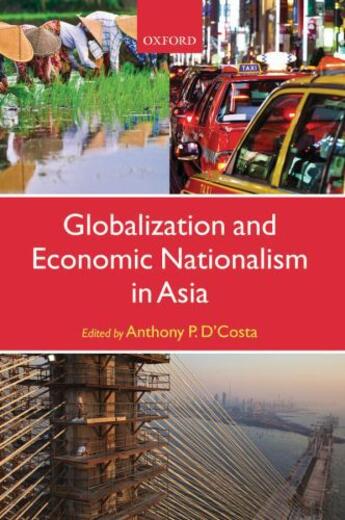-
Nombre de pages : (-)
-
Collection :
(-)
-
Genre :
(-)
-
Thème :
Non attribué
-
Prix littéraire(s) :
(-)
Résumé:
This collection documents the different ways in which Asian governments have been pursuing economic nationalism even as they have been integrating with the world economy. The book challenges the popular view that with globalization, either the role of the state becomes redundant or that states... Voir plus
This collection documents the different ways in which Asian governments have been pursuing economic nationalism even as they have been integrating with the world economy. The book challenges the popular view that with globalization, either the role of the state becomes redundant or that states are unable to purposefully intervene in the economy. The book argues that since most states pursue national interests, which largely include economic development, they work with national business and often intervene on their behalf to create internationally competitive industries. States are thus viewed as integral to capitalist development, and economic nationalism is neither theoretically nor empirically redundant.
Contributors from Asia and elsewhere present wide-ranging arguments and evidence to counter the view that with globalization economic nationalism is passé. Instead, they demonstrate that states in Asia are active in shaping trade, investment, technological, industrial, and financial outcomes. Using interdisciplinary social science approaches that are also historically sensitive, this book critically assesses why and how states in select Asian countries continue to intervene in the economy in both familiar and novel ways. Countries covered include India, China, South Korea, Singapore, Japan, and the East Asian region as a whole. Together they illustrate why these states practice economic nationalism even as they enthusiastically embrace the generalized process of globalization through domestic reforms and liberalization.
Donner votre avis














